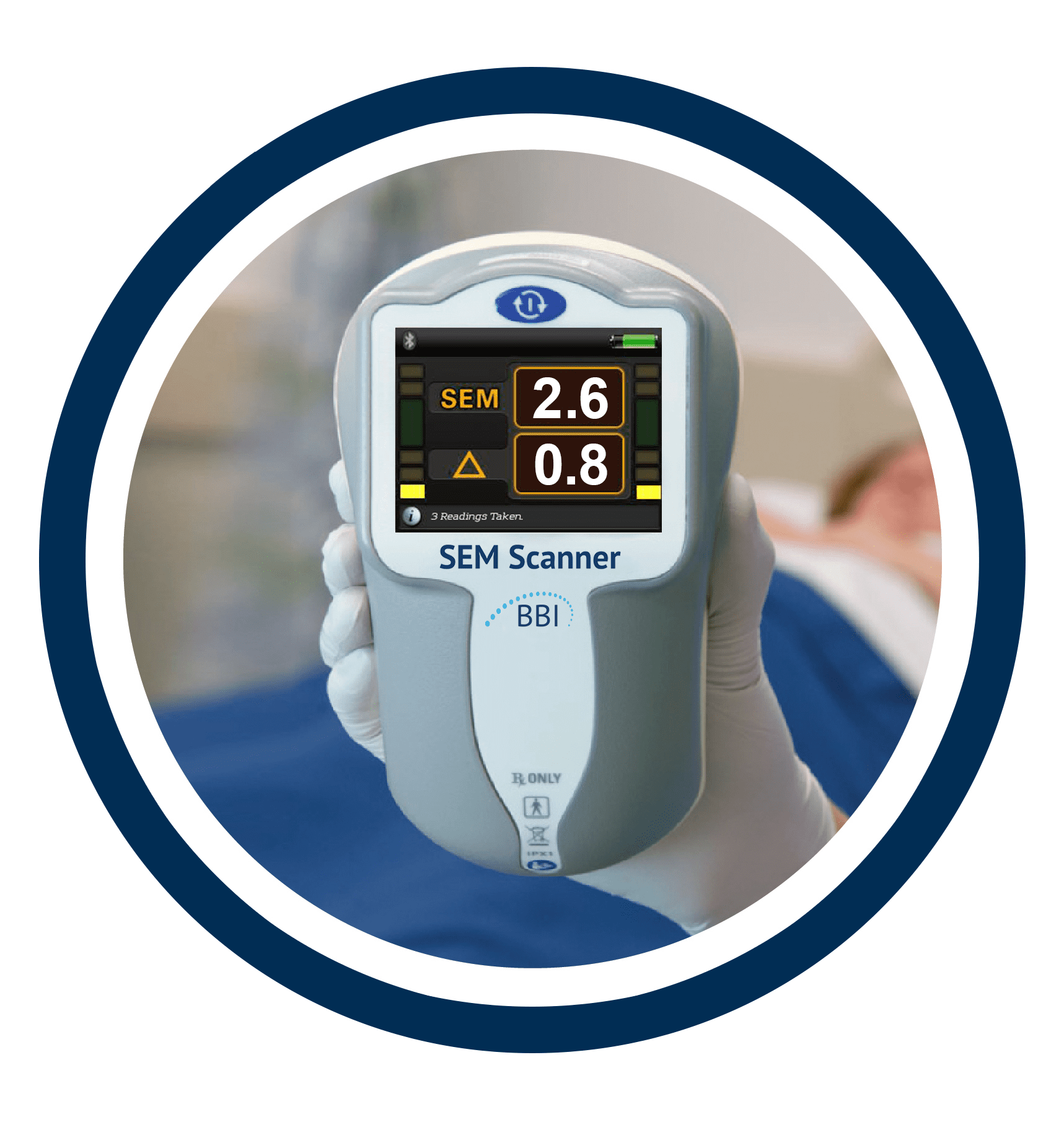Pioneering tech leads to impressive results in reducing pressure ulcers

Medical device specialist BBI has revealed that its SEM Scanner has been proven to result in an 86 percent reduction in hospital acquired pressure ulcers.
BBI is a pioneer in biometric-sensor based medical devices, developing point of care diagnostic solutions for early detection and monitoring of chronic, preventable conditions.
In the European market since 2014, BBI’s SEM Scanner is a hand-held, portable, skin tissue assessment device that measures sub-epidermal moisture (also known as localised oedema), which is an invisible precursor to the development of incipient pressure damage.
Pressure ulcers (PU) can affect anyone who is immobile for a period of time, with the elderly and chronically ill being at most risk. Despite being mostly avoidable, PUs are the most reported cause of harm in the NHS, causing acute pain, extending stays in hospital and even leading to fatal complications in severe cases.
The care of PUs places a significant drain on already stretched healthcare services in the UK. Recent research from NHS Improvement has shown that treating pressure damage costs the NHS more than £3.8m per day, and that 1,700-2,000 patients per month develop pressure ulcers. Key to successful management is early detection and intervention to prevent tissue damage, stresses BBI.
BBI’s SEM Scanner has been found, when used as an adjunct to current standard of care, to detect tissue damage on the sacrum and heels five days on average before it becomes visible on the skin surface. Not all incipient damage will progress to a pressure ulcer, especially when anatomically-specific interventions are applied before damage manifests at the skin’s surface.
Importantly, the SEM scanner has been proven to result in an 86.2 percent reduction in hospital acquired pressure ulcers.
According to BBI, the pressure is still increasing on PUs, with research from Nuffield Trust showing that emergency readmissions for pressure sores almost trebled from 7,787 in 2010/11 to 22,448 in 2016/17. The increase in the number of patients being readmitted with a pressure sore superseded the overall increase in the number of pressure sore diagnoses in hospital.
Commenting on these figures, Martin Burns, CEO of BBI, said: “We do not need to see increasing pressure ulcer numbers like this. A growing number of Tissue Viability Nurses (TVNs) have developed their own updated care protocols and are using updated care protocol in combination with BBI’s diagnostic technology to achieve reductions in PU incidence; on average achieving an 86.2% reduction.
“This updated approach is allowing these forward-thinking TVNs to keep their patients free from harm, freeing up NHS beds, using less nursing time to treat patients with PUs, and are saving their NHS Trusts money.”
In the UK, more than 20 different healthcare facilities have experience of using BBI’s SEM scanner within a number of different settings including: medical, orthopaedic, elderly care, intensive care, surgical, stroke and rehabilitation.
The SEM Scanner has been successfully trialled with several healthcare providers, including Marie Curie Newcastle, Isle of Wight NHS, and Virgin Care. Virgin Care, which provides services to the NHS, experienced a 95 percent drop in the pressure ulcer rate during a service redesign evaluation of the SEM Scanner at Farnham Community Hospital in Surrey.
The SEM Scanner is CE Mark approved. It is currently in full commercial launch in the United Kingdom, Ireland and Canada, Spain, Portugal, Belgium and Luxembourg.
Over the past three years, the SEM Scanner has won five major awards, including the ‘Most Innovative Product’ from the Journal of Wound Care awards 2018 and the ‘Best Innovation in Medical Technology’ from the Health Service Journal awards.

